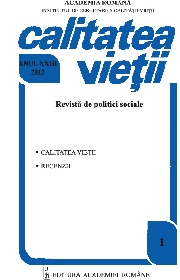

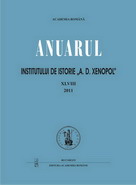
Anuarul Institutului de Istorie "A. D. Xenopol" (The "A. D. Xenopol" Institute of History Yearbook), formerly Anuarul Institutului de Istorie ºi Arheologie "A. D. Xenopol" ("The A. D. Xenopol Institute of History and Archeology Yearbook") was founded in 1964 by the members of the "A. D. Xenopol" Institute of History and Archeology in Iaºi. It appeared under the first name until 1989 and received the present name in 1990. It is published in one volume a year, consisting in a total average number of pages yearly of 400. Anuarul Institutului de Istorie "A. D. Xenopol" publishes original papers, preferably written in Romanian, in any area of the historical research. Particularly, the topics cover the history of the Moldavian Land from the ancient times to the present. In addition to presenting research papers, the yearbook published the proceeding of conferences held in Iaºi, survey articles and book reviews. All manuscripts are strictly refereed and only papers of high quality are accepted for publication. The yearbook is addressed to all researchers in history and to other scholarly public interested in the history of the Moldavian Land and the historiographic debates. The journal has a number of subscriptions and exchanges are made with scholarly publications of repute from all over the world.
More...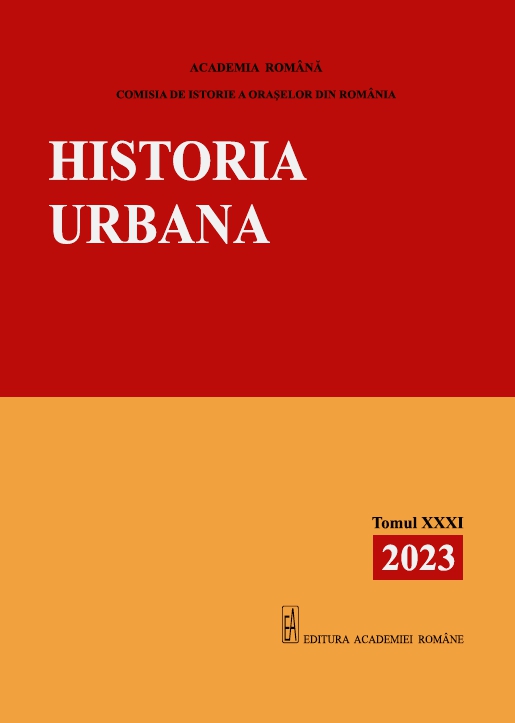
The Historia Urbana journal was founded in 1993 by the Romanian Academy, The History Commission of the Towns from Romania. Now it is published in one issue per year with a yearly average number of pages of 320-400. The journal publishes original papers written in Romanian, but also in an international language (English, French or German), in any area of town and urban life history from Romania and Europe, for instance: the evolution of urban structures, economical, social and cultural life, urbanistic, systematization and architecture matters, the relations with the hinterland and rural areas, the methodology of urban history research etc. In addition to presenting research papers, Historia Urbana publishes the proceedings of national and international conferences and thematically colloquies, yearly organized by The History Commission of the Towns from Romania, and book reviews. The journal is addressed to all specialists interested in urban history (historians, architects, geographers et alii).
More...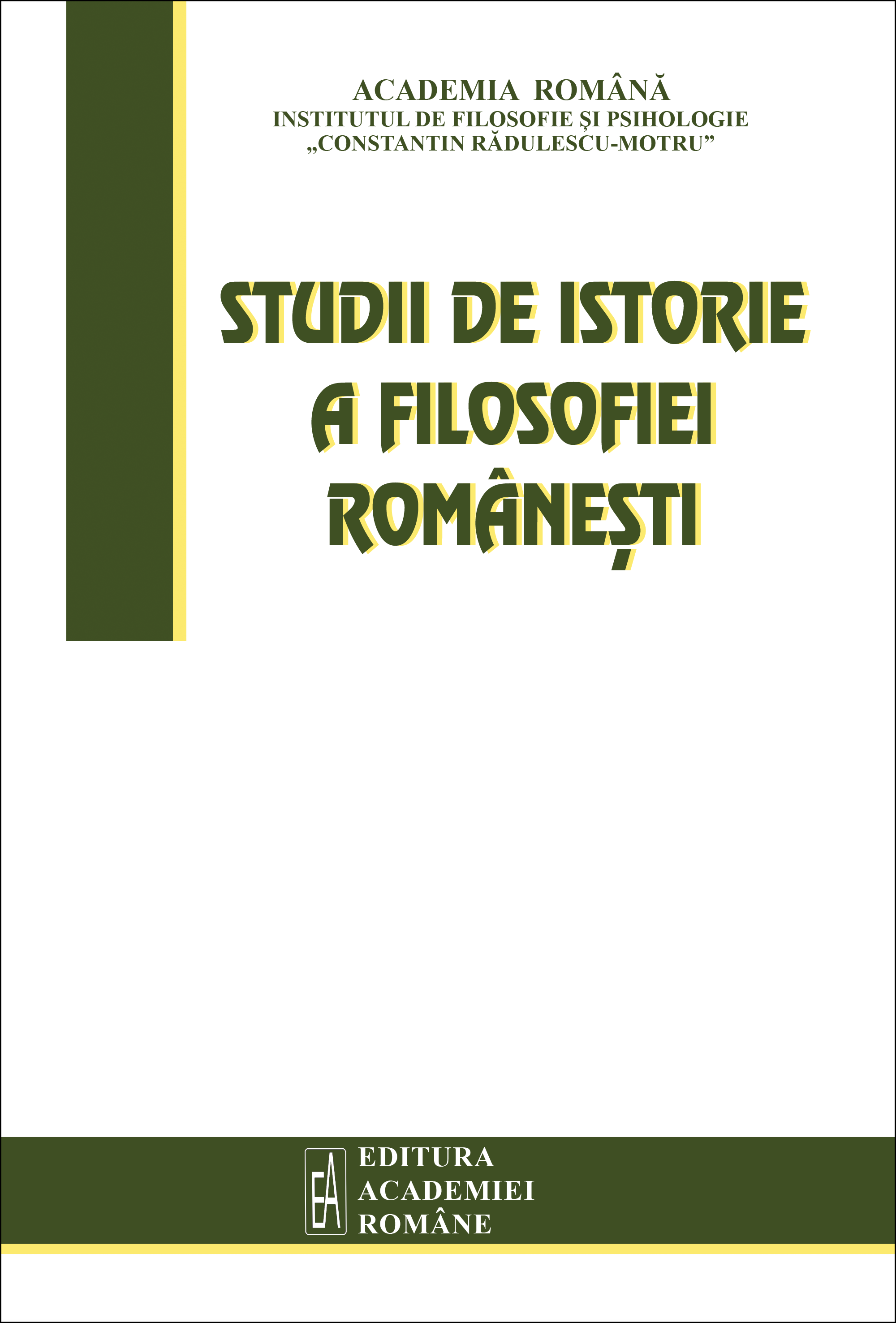
"Studii de istorie a filosofiei româneşti" [Studies on the History of Romanian Philosophy] is an academic peer-reviewed annual publication which was founded in 2006 with the aim of promoting new researches on the concepts and topics employed by the Romanian philosophical thinking. It publishes scholarly contributions engaging a wide range of methods (historiographical, comparative, hermeneutical, phenomenological, etc.), and perspectives (anthropological, aesthetic, moral, religious, etc). "Studii de istorie a filosofiei româneşti" usually publishes thematic issues that welcome pluri- and interdisciplinary approaches. The editors are researchers at “Constantin Rădulescu-Motru” Institute of Philosophy and Psychology of the Romanian Academy.
More...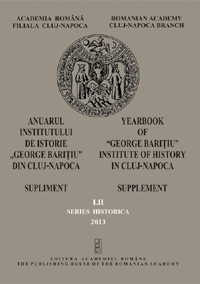
The Yearbook of the Institute of History "George Barițiu" in Cluj Napoca is the successor of Yearbook of the Institute of National History in Cluj Napoca, appearing since 1921. It is the regular scientific publication concerning Romanian History of the first Romanian institute in the country, created in 1920 as a consequence of the Great Union of 1918. The chronological evolution, of the Yearbook may be divided into four stages: 1921-1945; 1946-1957; 1958-1989; 1990- present. With a longevity of 90 years, Yearbook of the Institute of History "George Barițiu" in Cluj Napoca is the first regular professional scientific journal published in Romanian language in Transylvania, created for dissemination of research results of the newly created Institute of National History in 1920. This event can be related with the atmosphere of optimism and cultural effervescence after unification in 1918. Similar with the Institute of National History, this Journal had as a main task, that to promote the scientific results for members of the Institute, and also, a school of scientific promotion and consecration for young scholars. According to the vision of professor Ioan Lupaș, first director of the Institute of National History created in addition to Dacia Superior University in Cluj, the aim of the Yearbook was that young scholars who worked and were trained there, to be able to bring original and outstanding research works for the progress of national historiography. Since its beginning, the frequency of occurrence for Yearbook was set once a year and made possible thanks to exigency of chief editors: prestigious academic professors Ioan Lupaș, Alexandru Lapedatu, Constantin Daicoviciu, Ştefan Pascu, Camil Mureșanu, Nicolae Edroiu etc. The contents and summaries were almost always published also in international languages. Actually, the Yearbook is trying to adapt itself to the new editorial and scientific exigencies by promoting new authors and directions of research, as well as a good established collaboration with specialists from abroad.
More...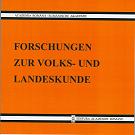
The journal publishes scientific studies in Romanian history in its different periods, dealing especially with social, political and economical aspects, as well as studies in history of art and literature, in linguistics, archaeology and ethnography. The emphasis is on particular aspects of life in the regions of Transylvania and Banat, such as the coinhabiting of Romanian, Hungarians and Germans, as well as the century-old relations between Transylvania and the neighbouring countries. The information part contains: reports, discussions, book-reviews. Through bringing into scientific circuit singular documents, the journal addresses the wide public who wants to deepen interdisciplinary aspects of culture, students, teachers and specialists.
The back issues of the journal (1960ies/70ies/80ies and 90ies) should be made digitally accessible step by step. The progress is based on the monetary funds available for this project. Accordingly, the indexing and inclusion in CEEOL is based on the project progress at the publishing house of the journal.
More...
Anuarul Institutului de Istorie «George Bariţiu» din Cluj-Napoca” / “Yearbook of the «George Bariţiu» Institute of History in Cluj-Napoca”, Series Humanistica a fost fondat în anul 2003, ca publicaţie a Departamentului de Cercetări Socio-Umane al Institutului clujean. Această publicaţie conţine cinci rubrici permanente. Prima dintre acestea, rubrica Studii, reuneşte materiale teoretice şi empirice din domeniile: economie, drept, filosofie, psihologie, ştiinţele educaţiei, sociologie şi antropologie. Celelalte rubrici sunt: Opinii şi Dezbateri, Restituiri (incluzând texte inedite sau mai puţin cunoscute ale unor autori din domeniile respective), Recenzii, Activitate ştiinţifică – Repertoriu selectiv (care prezintă, anual, activitatea cercetătorilor Departamentului). Anuarul se adresează cercetătorilor, cadrelor didactice, precum şi altor specialişti din domeniul ştiinţelor socio-umane, fiind deschis publicării materialelor care se încadrează în rubricile sale.
More...
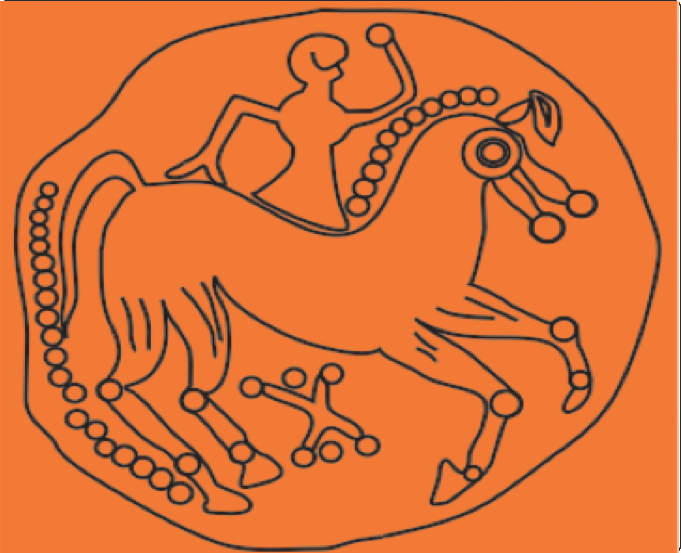
Materiale și Cercetări Arheologice features papers on various periods suitable to archaeological investigation, from prehistory and classical period to modern times.
Our journal publishes synthesis papers, detailed studies on new field discoveries, as well as book reviews. We invite scholars to publish in Romanian, English, French and German. Every paper, regardless of language, features an English abstract.
The peer-review process is single blind. We ask for reviews the scholars from the Advisory Board as well as scholars we contact through academically-oriented sites, such as academia.edu or researchgate.net.
More...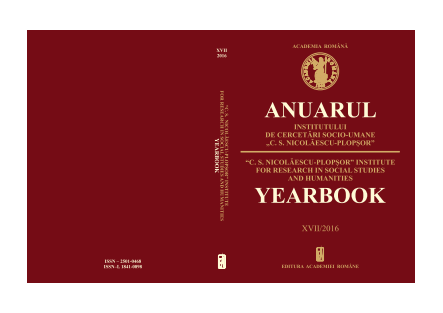
“C.S. Nicolăescu-Plopşor” Institute for Research in Social Studies and Humanities Yearbook (CSNIPSSH Yearbook)
Edited by the members of the “C.S. Nicolăescu-Plopşor” Institute for Research in Social Studies and Humanities, since 1999, journal “C.S. Nicolăescu-Plopşor” Institute for Research in Social Studies and Humanities Yearbook (CSNIPSSH Yearbook) publishes research articles, critical essays and reviews on various topics in the field of social and human sciences. The review aims to surpass the boundaries of a single discipline and to embrace related fields such as history, anthropology, sociology, philosophy, literature, theology, economy and law.
Professors, researchers (including PhD candidates and graduate students) and practitioners are welcome to publish scientific theoretical works and cases of practical activity in the “C.S. Nicolăescu-Plopşor” Institute for Research in Social Studies and Humanities Yearbook
More...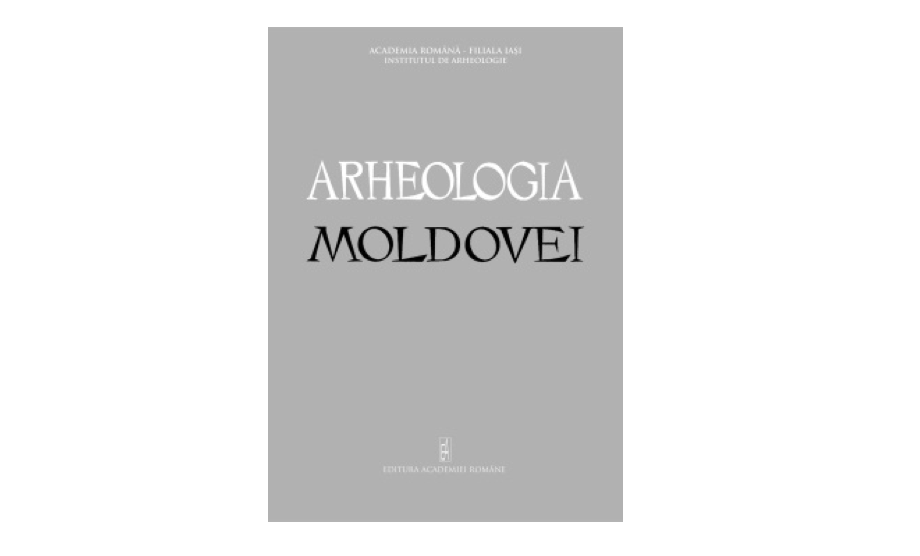
Arheologia Moldovei is one of the most prestigious Romanian scientific journals in the field of Archaeology, issued since 1961 by the Institute of Archaeology in Iasi, under the aegis of the Romanian Academy. Since 1990 the issues of the journal are published yearly. The journal publishes larger studies, papers, as well as notes and reviews pertaining to all fields of Archaeology, in terms of both chronology (from prehistory to the Middle Ages) and thematic (from theoretical essays to excavation reports and archaeometry). The languages of publication are English, German, French and Romanian (the latter with with larger English abstracts). Since its first issue, Arheologia Moldovei was an international journal which, even during the hard times of communism, provided authors from abroad with a forum and an opportunity for enhanced international collaboration. This is demonstrated, especially during the last years, by the large number of contributions by scholars from all over Europe, as well as from the rest of the world.
Arheologia Moldovei is an open access journal and does not charge any kind of publication fees.
Editorial Policy
Peer Review
The submitted papers are peer reviewed by foreign and Romanian scholars, covering all aspects of Archaeology and all periods, from Prehistory to the Middle Ages, before being admitted for publication. Arheologia Moldovei operates a strictly blinded peer review process in which the reviewer’s name is withheld from the author and, the author’s name from the reviewer. Each manuscript is reviewed by at least two referees.
Ethics
Arheologia Moldovei take issues of copyright infringement, plagiarism or other breaches of best practice in publication very seriously. We seek to protect the rights of our authors and we always investigate claims of plagiarism or misuse of articles published in the journal. Equally, we seek to protect the reputation of the journal against malpractice. Submitted articles may be checked using duplication-checking software. Where an article is found to have plagiarised other work or included third-party copyright material without permission or with insufficient acknowledgement, or where authorship of the article is contested, we reserve the right to take action including, but not limited to: publishing an erratum or corrigendum (correction); retracting the article (removing it from the journal); taking up the matter with the head of department or dean of the author’s institution and/or relevant academic bodies or societies; banning the author from publication in the journal, or even legal action.
Copyright
Copyright on published articles is retained by the author(s). The exclusive responsibility in respect of the acknowledgement of author’s rights and/or copyright rests with the responsible author(s). The Editor, publisher and reviewers of this journal cannot accept responsibility for the infringement of authors’ rights or copyright. The author grants the publisher unlimited rights to publish the work in any format and/or medium, whether for gain or any other purpose.
The journal is available in more the 300 public and research libraries outside Romania.
Arheologia Moldovei is available online, free of charge, as downloadable .pdf files. The digitization process was carried out with technical support from „A. Philippide” Institute of Philology in Iași.
More...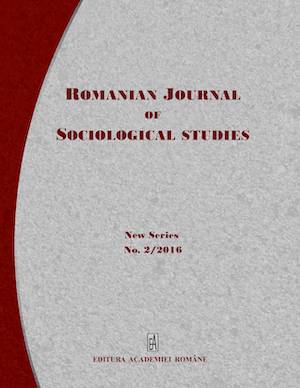
The Romanian Journal of Sociological Studies is an academic journal belonging to the Institute of Sociology of the Romanian Academy and to the Romanian Association of Sociology. The Romanian Journal of Sociological Studies is a bi-annual journal that publishes original researches and/or reviews in sociology and interdisciplinary research domains (cultural studies, gender studies, international relations, geopolitics, economics, etc.). The Romanian Journal of Sociological Studies is available online and in print.
More...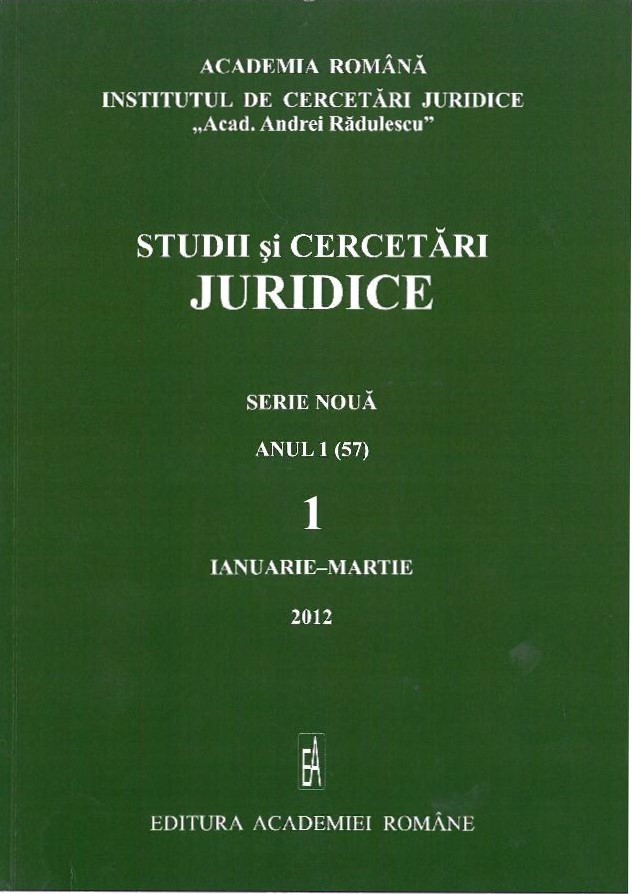
The Review “Legal Studies and Researches” is a specialized periodical of the Institute of Legal Research of the Romanian Academy “Acad. Andrei Rădulescu”, with a quarterly apparition (four numbers per year). A Government Decision founded the Institute in 1954, but the Review had its first appearance in 1956, two years after the foundation of the Institute. Therefore, the Review “Legal Studies and Researches” has a history of sixty-two years. In December 1989 the Scientific Board of the Institute, decided, unanimously, that the fourth number of the Review (number 4/1989) to be named “Romanian Law Studies”, New series [“Romanian Law Studies”, New Series, Year 21 (54)]. The Review wore this name until 2012, when it returned to its original name - “Legal Studies and Researches” – New Series, Year 1 (57).
The Review publishes valuable studies, studies that are the result of scientific research, with a higher level of originality, elaborated by the scientific researchers within the Romanian Academy, professors at prestigious Romanian Universities, but also studies and articles written by foreign specialists in the field of juridical sciences. At the same time, the Editorial Board sustains the publication of the valuable scientific studies of the young researchers and professors from all over the country.
The review “Legal Studies and Researches” is subject of the international interchange with 130 foreign partners from Europe, United States of America, Asia, Africa, Australia, interchange that is carried out through the International Interchange Department of the Romanian Academy.
More...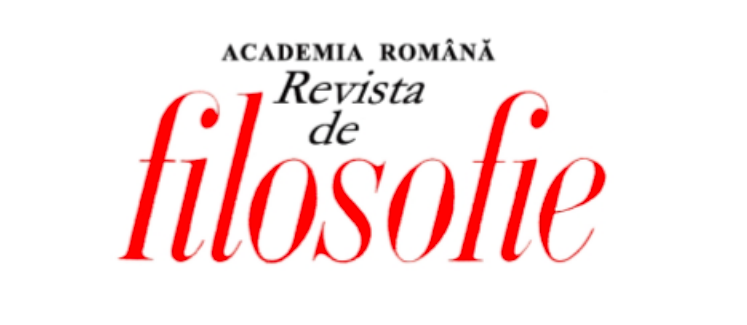
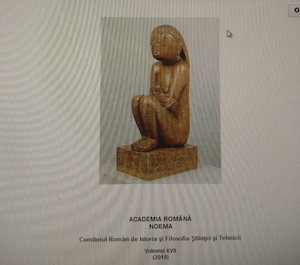
NOEMA is an annual trans-disciplinary, peer-reviewed double-blind bilingual (Romanian/English or French) journal of the Romanian Academy, edited by the Romanian Committee of the History and Philosophy of Science and Technology (CRIFST). Abstracts and full text (PDF) of all papers are available online for free.
More...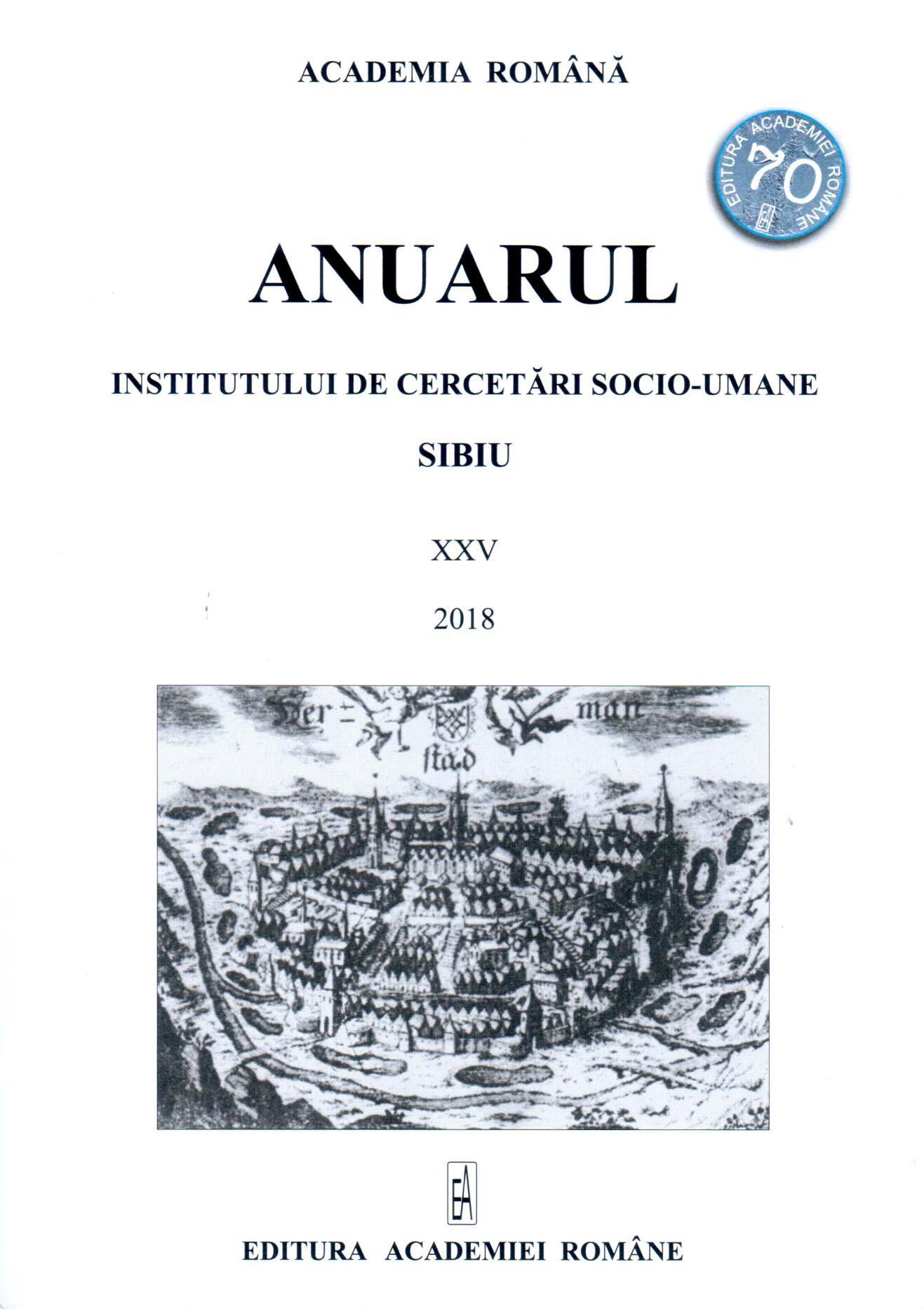
The Yearbook of the Institute of Social Sciences and Humanities Sibiu is a scholarly publication appearing since 1994, in its numbers containing papers – signed by researchers from Sibiu’s Institute, as well as from other academic or research institutions in Romania and other countries − in the fields of history, archeology, sociology, literary history, linguistics, literature, culture, art, ethnology, reviews and reading notes. Since 2010 the journal adopted double blind peer-review system and only accepts original articles written in Romanian, English, Italian, French and German, all reviewed by two internal or external specialists before publishing. The accepted articles, studies and reading notes should fall into the fields of History, Art History and Architecture, Cultural Studies, Memory and heritage, Literature and Linguistics.
More...

Established in 1962 by the Romanian Academy, Revue Roumaine d’Histoire is one of the few Romanian scientific journals in the field of history, which has appeared uninterruptedly for about six decades. The journal publishes national and international research works in French, English, German, and Italian, pertaining to historical sciences and dedicated to widely open approaches of social, political, economic and cultural history. It also encourages interdisciplinary approaches.
More...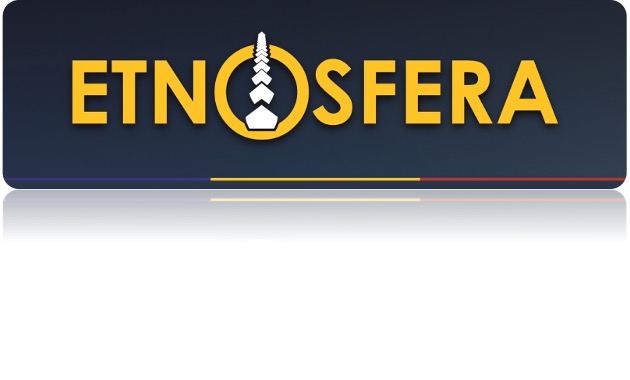
Etnosfera Journal is an editorial project initiated by a young and enthusiastic team in order to facilitate the research and results obtained by scholars around the globe. Founded in an electronic format in 2009, the Journal intends to be an interdisciplinary approach to which any researcher with important findings can contribute. The archive contains 37 issues (2009–2021) and 185 articles so far. Currently, the frequency of publishing is set to two issues / year.
The topics covered in the Journal belong to the field of social sciences and related fields (sociology, anthropology, geography, demography, communication, management, history, etc.), and the published articles cover general topics such as:
· the issue of minorities in Romania and Europe (ethnic, religious, cultural, linguistic, etc.)
· identity, culture and traditions
· (post)modernity
· migration theories and case studies within Europe
· communication and interculturality
· modern and contemporary perspectives on society
· the demographic situation of cults in Romania and in the world
· promotion and respect for human rights
· theories in Romanian and international geopolitics / geoeconomics
Starting with no.1/2018, out of the desire to mark the Centenary of the Great Union of Romania, the decision to completely revitalize the format and content of the Journal was taken. Thus, in addition to improving the editorial format, updating and diversifying the structure of the Scientific and Editorial Boards, the Etnosfera Journal started to be issued not only in electronic format, but also in a printed version, with the financial support of the Romanian Academy Publishing House. In addition, starting with 2020, the efforts of indexing the Journal in relevant international databases have started.

The Series Studii de istorie a filosofiei universale (SIFU; Studies in the History of World Philosophy) is an academic publication dedicated to the study of the history of philosophical ideas and to the reflection on the status of the history of philosophy as a fundamental philosophical discipline. The Series publishes essays on significant topics in the history of philosophy, as well as translations of fundamental philosophical works relevant for specific thematic volumes. The Series publishes thematic issues, the topic being announced at the beginning of the year. Volumes may also contain non-thematic sections.
More...